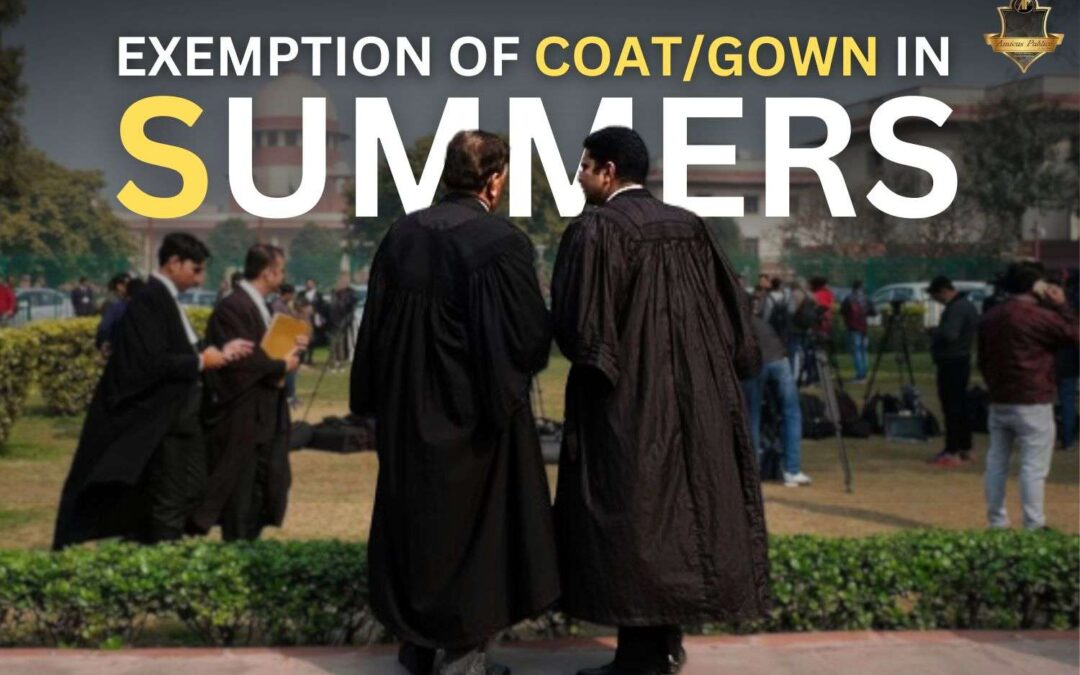In response to the extreme summer heat, the Karnataka High Court, through a circular issued on April 16, has granted a temporary exemption to advocates appearing in district and trial courts from the requirement to wear black coats. Advocates are now permitted to wear plain white shirts, salwar-kameez, or sarees of any muted color, accompanied by a plain white neckband.
Similarly, the Kerala High Court has passed a resolution, effective May 31, 2024, allowing advocates to dispense with wearing gowns during court sessions. Advocates appearing in district courts are permitted to wear a white shirt with a neckband, making the use of black coats and gowns optional. The Kerala High Court has also made the wearing of gowns optional.
These decisions provide significant relief to the legal fraternity, addressing the practical challenges posed by the oppressive summer temperatures. The Kerala High Court’s resolution was in response to a plea from the Kerala High Court Advocates Association, which emphasized the necessity for dress code flexibility during the high summer heat.
The Advocates Act stipulates that the requirement for advocates to wear black coats is waived during the summer months. This is often clarified through official notices and circulars. For instance, the Andhra Pradesh Bar Council issued a circular on March 14, 2023, specifying that “black coats are not required in subordinate courts during the summer,” applicable from March 15 to July 15 each year.
Furthermore, High Courts typically issue notifications in the summer, relaxing the requirement for advocates to wear gowns while practicing before them, despite this relaxation being contrary to the provisions of the Advocates Act. In 2023, the High Courts of Calcutta, Jammu and Kashmir, Kerala, Punjab, and Haryana, among others, permitted advocates to appear in court without gowns during the summer period.
Why the affirmation examples have been considered by way of filing a writ petition in the Supreme Court seeking directions to amend the rules and the Advocate Act of 1961 to exempt lawyers from wearing traditional black coats and gowns in the scorching heat of the summer months.
According to the India Meteorological Department (IMD) Report dated May 27, 2024, maximum temperatures were in the range of 47–49°C in most parts of Rajasthan; in the range of 44–46°C in many places over Punjab, Haryana–Chandigarh–Delhi; in some parts of Madhya Pradesh, Vidarbha; and in isolated pockets of Madhya Maharashtra, Telangana; 49.8°C was reported at Phalodi (West Rajasthan).
This information clearly indicates how important it is to work in any sector with so many precautions, especially in courts where the advocates are bound to wear black coats, which directly absorb heat and result in so many health issues.
The tradition of wearing black coats and gowns by advocates in India is rooted in history and symbolism, representing the dignity, formality, and respect associated with the legal profession. However, this tradition must be re-evaluated in the context of modern health and safety considerations, particularly during the prevailing summer months in various states across India.

